Tesla Berlin Gigafactory Celebrates Production of 500,000th Model Y
 RobertApr 01, 2025, 04:33 PM
RobertApr 01, 2025, 04:33 PM
【PCauto】Tesla's Berlin Gigafactory has officially marked the rollout of its 500,000th Model Y. This milestone signifies a critical step in Tesla's localization strategy in Europe and reflects the profound impact of Europe's complex regulatory environment and global supply chain fluctuations on the manufacturing sector.
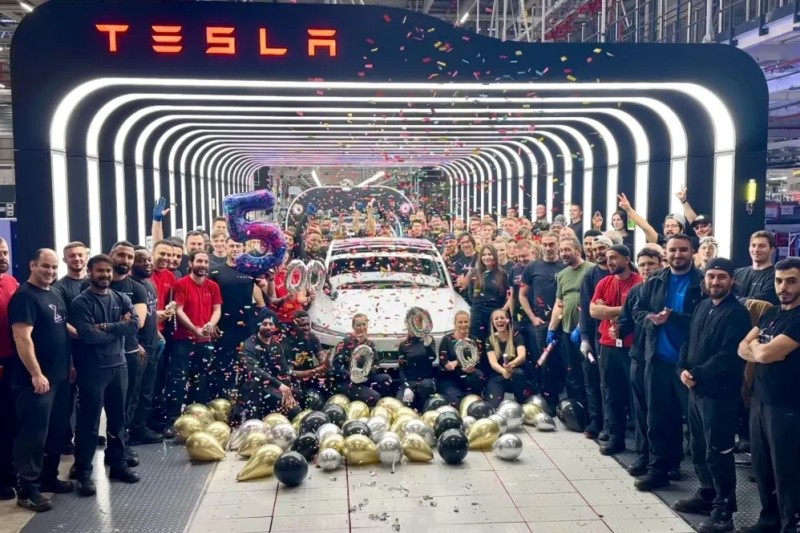
The inception of the Berlin Gigafactory dates back to November 2019, when Tesla announced plans to build its first European Gigafactory in Brandenburg, Germany. However, the project faced strong opposition from environmental organizations right from the start. The clearing of forestland for the factory site, which involved protecting habitats for endangered species, sparked months of legal battles and public protests, resulting in delays of nearly two years for construction permit approvals. It was until October 2021 that the factory received authorization to begin trial production, with full-scale operations delayed until March 22, 2022. From the project's groundbreaking to the production of its 500,000th vehicle, the Berlin factory took approximately 1,100 days, far exceeding the construction efficiency of the Shanghai Gigafactory, which achieved one million vehicles from 2019 to 2022, and the Texas Gigafactory, which reached 500,000 in 2022-2023.
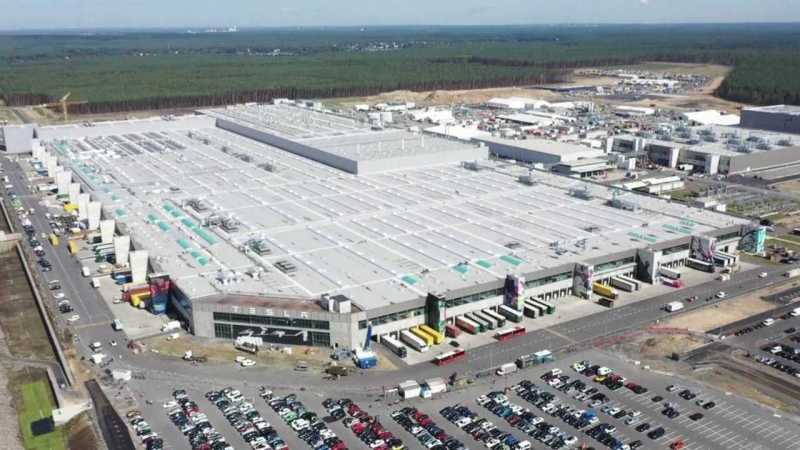
The capacity expansion of the Berlin factory can be divided into three phases:
1. Initial Bottleneck Phase (2022): Hampered by a shortage of local battery supplies and logistics disruptions resulting from the Russia-Ukraine conflict, the factory's actual production in its first year was only 50,000 to 60,000 vehicles, well below the annual target of 500,000.
2. Optimization and Acceleration Phase (2023): By integrating critical components from the Chinese supply chain and optimizing the production line's automation, weekly output surged from 2,000 to 5,000 vehicles, with an annual production reaching nearly 250,000.
3. Stable Expansion Phase (2024): As the localization of the supply chain increases to 60%, the factory is expected to achieve a daily production rate of 1,400 Model Ys, with annual capacity anticipated to exceed 500,000, accounting for 15% of Tesla's global production capacity.
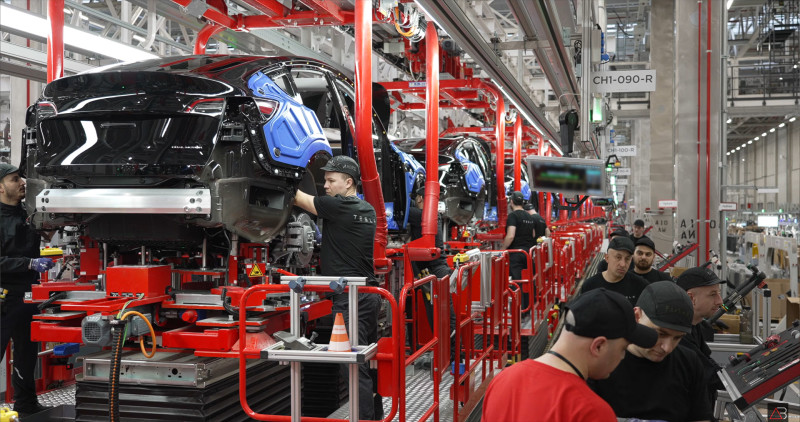
Behind this capacity enhancement, the Berlin factory has operated under multiple external pressures.
First, to comply with Germany's stringent environmental regulations, Tesla invested an additional €450 million to develop a water recycling system and committed to using 100% renewable energy for operations, which has increased the production cost per vehicle by approximately 8%.
Second, soaring natural gas prices in Europe in 2022 raised the factory's energy expenses, forcing Tesla to increase the price of the Model Y in the German market by 12%, which weakened its price competitiveness.
Additionally, unlike its U.S. factories, the Berlin facility must adhere to Germany's union-mandated 35-hour workweek, resulting in labor costs that are 20% higher, thus pressuring the need for enhanced production efficiency.
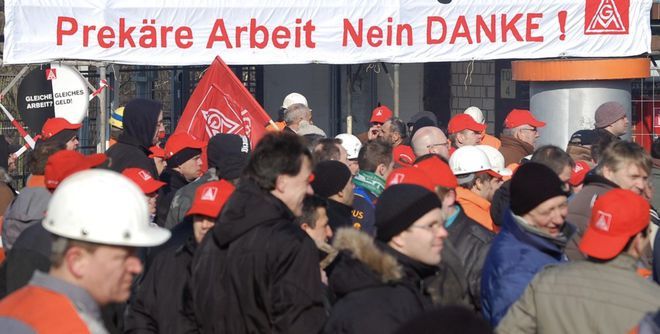
Despite these challenges, the Berlin factory has demonstrated its irreplaceable strategic value. Localized production has allowed the Model Y to avoid a 10% import duty in the EU, increasing the profit per vehicle by about €3,000. In 2023, the Model Y sold 214,000 units, retaining its title as the best-selling electric vehicle in Europe, with a market share of 19%.
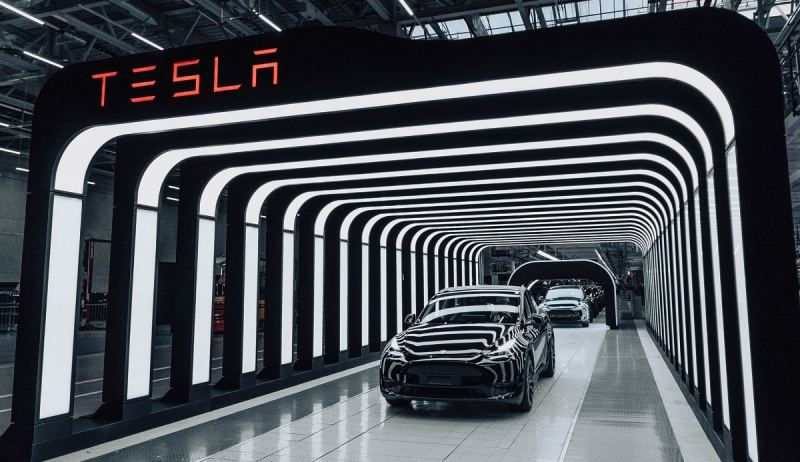
The factory has also spurred the development of a local industrial cluster for batteries, motors, and aluminum components, with 12 key suppliers, including Bosch and Siemens, establishing operations within a 50-kilometer radius.
Uncertainties remain regarding the next phase of the factory's development. The planned production line for the 4680 battery, originally set to go online in 2023, has been delayed until 2025 due to technical challenges, meaning the factory will continue to rely on battery imports from China in the short term.
Should the EU implement a carbon footprint tax on power batteries, the localized cost advantages of the Berlin factory may be diminished.
Furthermore, the ongoing anti-subsidy investigation into Chinese electric vehicles could affect Tesla's supply chain from China, necessitating a careful balance between localization and global sourcing strategies.
If any infringement occurs, please contact us for deletion
Trending News

BYD Sealion 7 is not only cheaper than Tesla Model Y, what other differences do they have?
Is it better to buy the BYD Sealion 7 or the Tesla Model Y? This really makes one a bit hesitant, but before you make a decision, I recommend you take a good look at this article.

2026 Toyota Hilux Travo released, the brand-new exterior and interior are highly anticipated
If you're considering buying a Hilux, honestly, the comprehensive innovations in the ninth generation are worth waiting for. While the current model might still have some advantages in terms of reliability and price, the new model offers significant changes in terms of exterior and interior luxury, tech features, and powertrain options.

In Malaysia, which sliding door MPVs are available?
The numerous advantages of sliding door MPVs make many people fond of this type of vehicle. However, MPVs are not a mainstream choice in the car market, so many people might not know which MPVs are available domestically.

Jaecoo J7 VS Honda CR-V, which is the most worthwhile C-Segment SUV to buy
With an exterior that closely resembles a Land Rover, Jaecoo J7's sales experienced several months of rapid growth but have recently slowed down. Perhaps the market is nearing saturation, as Jaecoo J7 has already surpassed the once-dominant Honda CR-V in the C-Segment SUV category.

Which one is better, Honda City or Toyota Vios?
When choosing a compact sedan, Honda City and Toyota Vios are often two options that make people weigh repeatedly. You might be attracted to the dynamic design of the Vios but also be captivated by the City.
Popular Cars
Model Year
Car Compare
Car Photo

